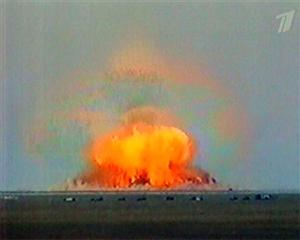Re: The Rise of the Russian Empire: Russo-Armenian Relations
Though differing in the specifics, the overall attitude displayed here is strongly reminiscent of that of the West toward the East during the last great Islamic offensive in Europe as the dying Byzantine, Bulgarian, and Serbian states faced Ottoman conquest in the 15th century. The West then was explicit: we will help you only if you renounce Orthodoxy in favor of Roman Catholicism. In today's geopolitical context, when western churchmen join in calls for military action by western governments against Orthodox countries to help Muslims, Pope John Paul's calls for ecumenical dialogue and eventual reunion of East and West, the topic of his encyclicals Ut Unam Sint and Slavorum Apostoli , look suspiciously familiar to eastern eyes. While this perception is somewhat simplistic if only because the West today is no longer the Roman Catholic monolith it once was, the larger question should not be so easily dismissed: the Orthodox East is being told today that unless they unquestioningly submit to the West's tutelage in political, social, moral, and economic matters - the collective "religion" of the Enlightenment heritage - they again will be thrown to the wolves. In fact, the West will even help the wolves to devour them.
The immorality, not to mention the stupidity, of this should be obvious. Maybe Christians will never come to agreement on doctrinal matters, maybe the East will insist on retaining its distinctive religious and cultural heritage. But even if, broadly speaking, East and West are never able to share a common Eucharistic chalice, does that mean they must be enemies? Some seem to suggest: yes. Instead, I submit that the survival of Christian Orthodox civilization in the East should be hardly less important to the West than to the Orthodox themselves, and indeed over the long term the West's own fate may depend on it. The fact that the West cannot recognize this reality is part of the same inability to recognize its own internal vulnerability, with the forest of minarets going up mainly in Western Europe but also now in North America.
Some Christians see the Muslim influx primarily as an opportunity for evangelization, and indeed we should never neglect to share the Gospel, the only real liberation, with Muslims, who should not, as individuals, be held responsible for the violent system into which they were born and of which they are perhaps more than anyone else victims. At the same time, in light of the growing volume of Muslim immigration, western Christians will soon find out - maybe sooner than they think, given western birthrates - that confronting the Islamic advance has become, as it has always been for eastern Christians, a simple matter of physical survival. But by that time it may be too late for the West as well.
This article was taken from Volume 13 of The Christian Activist. Permission was given to the Orthodox Christian Information to republish on the Web.
Though differing in the specifics, the overall attitude displayed here is strongly reminiscent of that of the West toward the East during the last great Islamic offensive in Europe as the dying Byzantine, Bulgarian, and Serbian states faced Ottoman conquest in the 15th century. The West then was explicit: we will help you only if you renounce Orthodoxy in favor of Roman Catholicism. In today's geopolitical context, when western churchmen join in calls for military action by western governments against Orthodox countries to help Muslims, Pope John Paul's calls for ecumenical dialogue and eventual reunion of East and West, the topic of his encyclicals Ut Unam Sint and Slavorum Apostoli , look suspiciously familiar to eastern eyes. While this perception is somewhat simplistic if only because the West today is no longer the Roman Catholic monolith it once was, the larger question should not be so easily dismissed: the Orthodox East is being told today that unless they unquestioningly submit to the West's tutelage in political, social, moral, and economic matters - the collective "religion" of the Enlightenment heritage - they again will be thrown to the wolves. In fact, the West will even help the wolves to devour them.
The immorality, not to mention the stupidity, of this should be obvious. Maybe Christians will never come to agreement on doctrinal matters, maybe the East will insist on retaining its distinctive religious and cultural heritage. But even if, broadly speaking, East and West are never able to share a common Eucharistic chalice, does that mean they must be enemies? Some seem to suggest: yes. Instead, I submit that the survival of Christian Orthodox civilization in the East should be hardly less important to the West than to the Orthodox themselves, and indeed over the long term the West's own fate may depend on it. The fact that the West cannot recognize this reality is part of the same inability to recognize its own internal vulnerability, with the forest of minarets going up mainly in Western Europe but also now in North America.
Some Christians see the Muslim influx primarily as an opportunity for evangelization, and indeed we should never neglect to share the Gospel, the only real liberation, with Muslims, who should not, as individuals, be held responsible for the violent system into which they were born and of which they are perhaps more than anyone else victims. At the same time, in light of the growing volume of Muslim immigration, western Christians will soon find out - maybe sooner than they think, given western birthrates - that confronting the Islamic advance has become, as it has always been for eastern Christians, a simple matter of physical survival. But by that time it may be too late for the West as well.
This article was taken from Volume 13 of The Christian Activist. Permission was given to the Orthodox Christian Information to republish on the Web.
















Comment